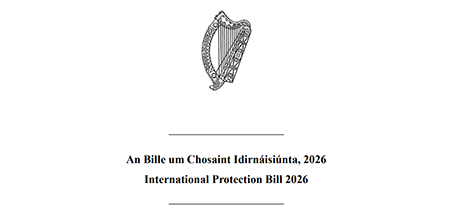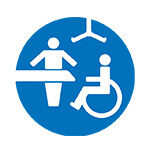Public Sector Equality and Human Rights Duty
Featured work

Observations on Part 4 and Part 5 of the General Scheme of the Criminal Law (Sexual Offences, Domestic Violence and International Instruments) Bill 2025
Read more
Irish Human Rights and Equality Commission responds to International Protection Bill, warning key equality safeguards remain unclear
Read more
Accessibility
On this page we explain how we make our services as accessible as possible for people with access needs.
View all Accessibility
Report Discriminatory Advertising
On this page you can find out how to report discrimination you have seen in an advertisement.
View all Report Discriminatory Advertising
Civil Society
On this page, you will find information about how we work with and support civil society organisations working to promote and protect human rights and equality.
View all Civil Society
Changing Places Facility
On this page we explain how we provide a fully accessible Changing Places facility for people with disabilities and carers at our offices.
View all Changing Places FacilityBrowse our publications and gain insight into our work
Latest News & Press Releases
Work with and for us
We aim to eliminate discrimination, promote equal opportunities, and protect the human rights of everyone we work with and for.
Whenever possible, we collaborate with other organisations and groups. This helps us to build knowledge and evidence of issues that affect people in Ireland. We use this knowledge to promote human rights and equality.
We strive to create a diverse workforce that mirrors Irish society. We value the diverse backgrounds, perspectives, and skills of our staff. We want to create a workplace where everyone feels respected and valued.






